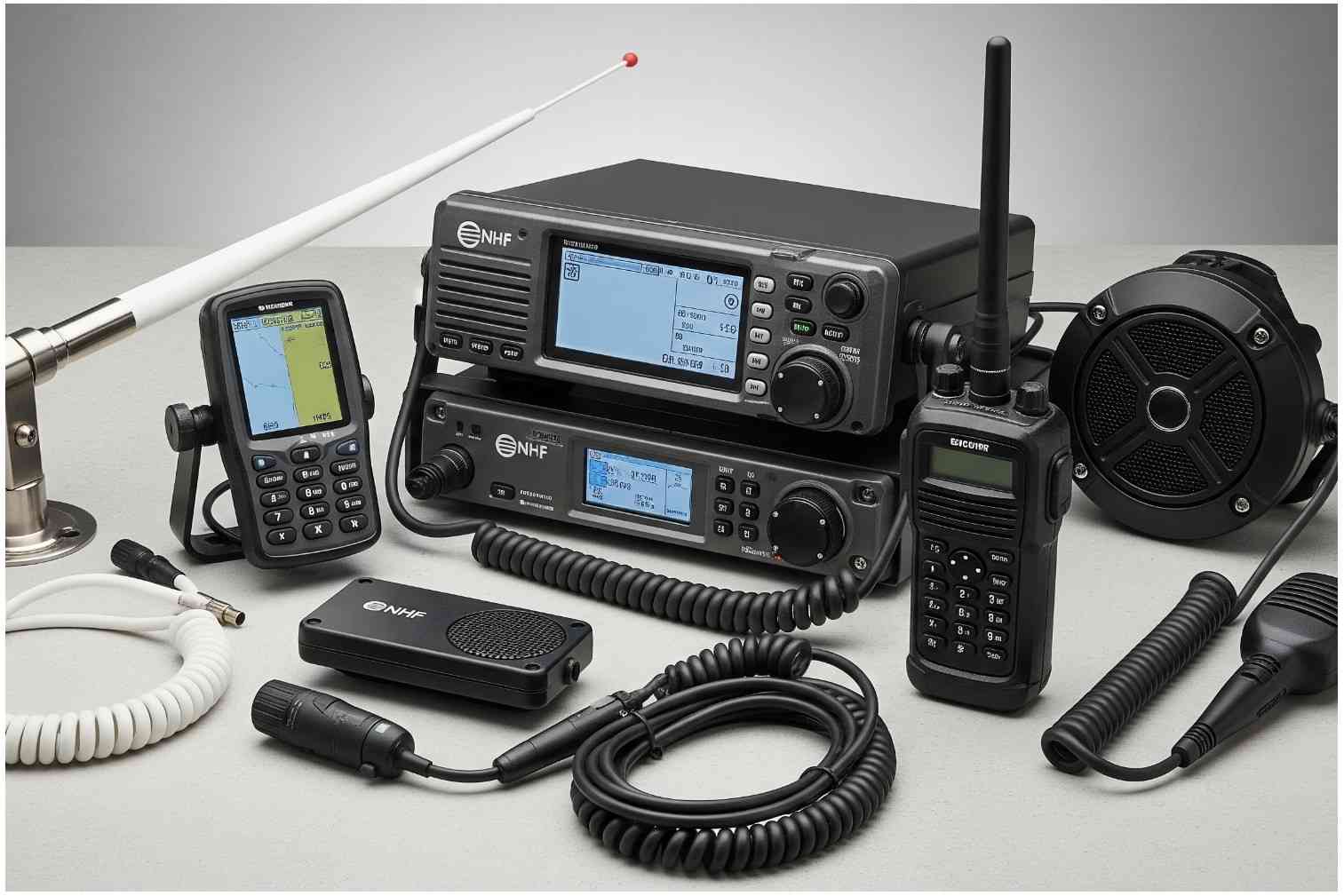
Marine radio equipment plays a vital role in ensuring safe and reliable communication at sea. Whether it’s a commercial shipping vessel, a fishing boat or a private yacht in Dubai, having the right radio equipment can make all the difference in emergencies, navigation and daily operations. This blog gives you a complete overview of marine radio systems, covering the different types, their functions and the signs that tell you when your equipment needs servicing. It is designed for both professionals and recreational boaters who want to better understand how marine radios work and how to maintain them for peak performance. We’ll also share practical tips to help vessel owners in the UAE keep their systems compliant, functional and ready for any situation.
Why Marine Radio Equipment Matters
Marine environments are unpredictable. Communication is often your only lifeline when you are far from the shore. Whether it’s coordinating with port authorities, sending distress signals or receiving weather updates, marine radios provide the necessary link. In Dubai and across the UAE, where marine activity is high due to trade, fishing and tourism, proper radio communication is not only important but it is a legal and safety requirement for many vessels.
Types of Marine Radio Equipment
Marine radios come in various types, each serving different functions depending on the size and type of vessel. Here’s a look at the most commonly used ones:
1. VHF Marine Radios (Very High Frequency)
- The most common type used on boats and ships.
- Works for short-range communication (typically up to 20–30 nautical miles).
- Required by law for many commercial vessels.
- Channels are set by international standards, including Channel 16 for emergency and distress calls.
2. MF/HF Radios (Medium and High Frequency)
- Suitable for long-range communication, even beyond the horizon.
- Can be used to send messages over hundreds of miles.
- Often used by ships involved in international voyages.
3. Satellite Communication Systems
- Use satellite signals for global coverage.
- Ideal for deep-sea vessels or yachts that travel beyond VHF or HF range.
- Supports voice calls, internet and emergency services.
4. GMDSS Equipment (Global Maritime Distress and Safety System)
- A set of international safety protocols and equipment.
- Includes EPIRBs (Emergency Position Indicating Radio Beacons), SARTs (Search and Rescue Transponders), NAVTEX receivers and more.
- Mandatory for SOLAS-compliant vessels (International Convention for the Safety of Life at Sea).
5. AIS (Automatic Identification System)
- Not a radio in the traditional sense, but it works through VHF frequencies.
- Transmits a vessel’s identity, position, speed and course to nearby ships and shore stations.
- Helps prevent collisions and improves situational awareness.
Key Functions of Marine Radio Systems
Marine radio equipment offers a wide range of features, some of which are life-saving. Here’s what they’re used for:
- Emergency Communication: The ability to send out distress calls (Mayday) or alerts if someone is in danger.
- Ship-to-Ship and Ship-to-Shore Contact: Enables communication with other vessels and coastal stations for coordination, updates and instructions.
- Weather Updates: Receive real-time weather forecasts and alerts to avoid dangerous conditions.
- Navigation Support: Communicate with port authorities for docking, customs and clearance.
- Search and Rescue Operations: Critical in guiding rescue teams during emergencies.
When You Need Marine Radio Servicing
Like any technical system, marine radios need regular checks and servicing to work effectively. The marine environment, with salt, moisture, and vibrations, can affect the performance of electronic equipment. Knowing when your system needs attention is key to avoiding failures.
Signs your marine radio needs servicing:
- Poor signal quality or range reduction
- Unresponsive or malfunctioning buttons or screens
- Static noise or interference during communication
- Antenna issues or loose cable connections
- Failure to transmit or receive messages
- Non-functioning GPS or AIS data
If you’re noticing any of these problems, it’s best to consult a marine electronics expert without delay.
Importance of Regular Maintenance and Inspection
In Dubai and other coastal areas, boats are exposed to extreme sun, humidity and salty air, all of which can damage electronic equipment over time. Regular servicing helps to:
- Prevent unexpected failures at sea
- Ensure compliance with maritime regulations
- Extend the lifespan of your equipment
- Maintain clarity in communication, especially during emergencies
- Avoid legal or insurance issues due to faulty systems
Tips for Taking Care of Your Marine Radio
While professional servicing is important, there are a few things you can do to keep your equipment in good condition:
- Keep it dry: Ensure water does not enter the control unit or connections.
- Clean regularly: Wipe surfaces and screens to remove salt and dust.
- Check cables: Inspect wiring and connectors for corrosion or looseness.
- Test your system: Do routine checks to confirm the radio can transmit and receive properly.
- Update software: If your radio has GPS, AIS or digital functions, keep the firmware updated.
Legal Requirements in the UAE
Marine communication systems in the UAE must comply with local and international regulations. If you own or manage a commercial vessel, you are required to have approved and functioning communication equipment on board.
Some of the authorities and regulations to keep in mind include:
- Dubai Maritime City Authority (DMCA)
- Federal Transport Authority (FTA)
- SOLAS regulations for international voyages
- Regular inspection certificates for vessels
Ignoring these rules can lead to fines, delays or denial of permits, especially for charter boats or commercial shipping.
Choosing the Right Marine Radio Equipment
The type of equipment you need depends on:
- Size and type of vessel
- Operational area (coastal vs offshore)
- Frequency of travel
- Legal requirements for your vessel category
- Crew training and familiarity with the system
It’s best to consult a marine electronics expert to assess your needs and recommend the right system for safety, communication and efficiency.
Conclusion
To sum up, reliable marine radio equipment is essential for the safety, coordination and smooth operation of any vessel in UAE waters. From short-range VHF radios to advanced GMDSS systems and satellite communication, each piece of equipment plays a vital role at sea. Regular servicing, inspection and expert installation ensure that these systems function when they are needed the most.
V-Tech Group specializes in high-quality marine communication solutions for the Dubai maritime sector. Our team provides expert advice, certified equipment and full servicing support for all kinds of vessels. Whether you are a private yacht owner or operate a commercial fleet, we help you stay connected and compliant with the latest marine communication standards. Let V-Tech Group keep your vessel safe, smart and ready for every journey. Contact us today.



